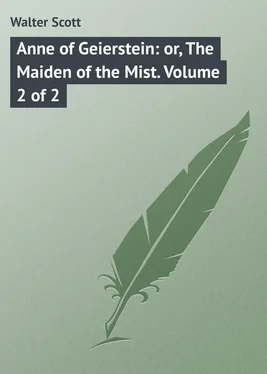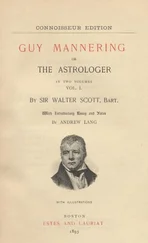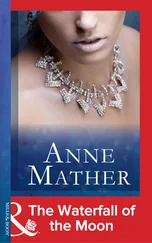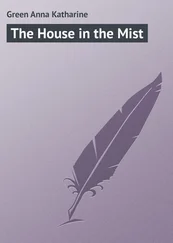Walter Scott - Anne of Geierstein - or, The Maiden of the Mist. Volume 2 of 2
Здесь есть возможность читать онлайн «Walter Scott - Anne of Geierstein - or, The Maiden of the Mist. Volume 2 of 2» — ознакомительный отрывок электронной книги совершенно бесплатно, а после прочтения отрывка купить полную версию. В некоторых случаях можно слушать аудио, скачать через торрент в формате fb2 и присутствует краткое содержание. Жанр: foreign_prose, на английском языке. Описание произведения, (предисловие) а так же отзывы посетителей доступны на портале библиотеки ЛибКат.
- Название:Anne of Geierstein: or, The Maiden of the Mist. Volume 2 of 2
- Автор:
- Жанр:
- Год:неизвестен
- ISBN:нет данных
- Рейтинг книги:4 / 5. Голосов: 1
-
Избранное:Добавить в избранное
- Отзывы:
-
Ваша оценка:
- 80
- 1
- 2
- 3
- 4
- 5
Anne of Geierstein: or, The Maiden of the Mist. Volume 2 of 2: краткое содержание, описание и аннотация
Предлагаем к чтению аннотацию, описание, краткое содержание или предисловие (зависит от того, что написал сам автор книги «Anne of Geierstein: or, The Maiden of the Mist. Volume 2 of 2»). Если вы не нашли необходимую информацию о книге — напишите в комментариях, мы постараемся отыскать её.
Anne of Geierstein: or, The Maiden of the Mist. Volume 2 of 2 — читать онлайн ознакомительный отрывок
Ниже представлен текст книги, разбитый по страницам. Система сохранения места последней прочитанной страницы, позволяет с удобством читать онлайн бесплатно книгу «Anne of Geierstein: or, The Maiden of the Mist. Volume 2 of 2», без необходимости каждый раз заново искать на чём Вы остановились. Поставьте закладку, и сможете в любой момент перейти на страницу, на которой закончили чтение.
Интервал:
Закладка:
Walter Scott
Anne of Geierstein; Or, The Maiden of the Mist. Volume 2 (of 2)
What! will the aspiring blood of Lancaster
Sink in the ground?
CHAPTER I
1st Carrier. What, ostler! – a plague on thee, hast never an eye in thy head? Canst thou not hear? An 'twere not as good a deed as drink to break the pate of thee, I am a very villain – Come, and be hanged – Hast thou no faith in thee?
Gadshill. I pray thee, lend me thy lantern, to see my gelding in the stable.
2d Carrier. Nay, soft, I pray you – I know a trick worth two of that.
Gadshill. I prithee lend me thine.
3d Carrier. Ay, when? Canst tell? – Lend thee my lantern, quotha? Marry, I'll see thee hanged first.
Henry IV.The social spirit peculiar to the French nation had already introduced into the inns of that country the gay and cheerful character of welcome upon which Erasmus, at a later period, dwells with strong emphasis, as a contrast to the saturnine and sullen reception which strangers were apt to meet with at a German caravansera. Philipson was, therefore, in expectation of being received by the busy, civil, and talkative host – by the hostess and her daughter, all softness, coquetry, and glee – the smiling and supple waiter – the officious and dimpled chambermaid. The better inns in France boast also separate rooms, where strangers could change or put in order their dress, where they might sleep without company in their bedroom, and where they could deposit their baggage in privacy and safety. But all these luxuries were as yet unknown in Germany; and in Alsace, where the scene now lies, as well as in the other dependencies of the Empire, they regarded as effeminacy everything beyond such provisions as were absolutely necessary for the supply of the wants of travellers; and even these were coarse and indifferent, and, excepting in the article of wine, sparingly ministered.
The Englishman, finding that no one appeared at the gate, began to make his presence known by calling aloud, and finally by alighting, and smiting with all his might on the doors of the hostelry for a long time, without attracting the least attention. At length the head of a grizzled servitor was thrust out at a small window, who, in a voice which sounded like that of one displeased at the interruption, rather than hopeful of advantage from the arrival of a guest, demanded what he wanted.
"Is this an inn?" replied Philipson.
"Yes," bluntly replied the domestic, and was about to withdraw from the window, when the traveller added, —
"And if it be, can I have lodgings?"
"You may come in," was the short and dry answer.
"Send some one to take the horses," replied Philipson.
"No one is at leisure," replied this most repulsive of waiters; "you must litter down your horses yourself, in the way that likes you best."
"Where is the stable?" said the merchant, whose prudence and temper were scarce proof against this Dutch phlegm.
The fellow, who seemed as sparing of his words as if, like the Princess in the fairy tale, he had dropped ducats with each of them, only pointed to a door in an outer building, more resembling that of a cellar than of a stable, and, as if weary of the conference, drew in his head, and shut the window sharply against the guest, as he would against an importunate beggar.
Cursing the spirit of independence which left a traveller to his own resources and exertions, Philipson, making a virtue of necessity, led the two nags towards the door pointed out as that of the stable, and was rejoiced at heart to see light glimmering through its chinks. He entered with his charge into a place very like the dungeon vault of an ancient castle, rudely fitted up with some racks and mangers. It was of considerable extent in point of length, and at the lower end two or three persons were engaged in tying up their horses, dressing them, and dispensing them their provender.
This last article was delivered by the ostler, a very old lame man, who neither put his hand to wisp or curry-comb, but sat weighing forth hay by the pound, and counting out corn, as it seemed, by the grain, so anxiously did he bend over his task, by the aid of a blinking light enclosed within a horn lantern. He did not even turn his head at the noise which the Englishman made on entering the place with two additional horses, far less did he seem disposed to give himself the least trouble, or the stranger the smallest assistance.
In respect of cleanliness, the stable of Augeas bore no small resemblance to that of this Alsatian dorf , and it would have been an exploit worthy of Hercules to have restored it to such a state of cleanliness as would have made it barely decent in the eyes, and tolerable to the nostrils, of the punctilious Englishman. But this was a matter which disgusted Philipson himself much more than those of his party which were principally concerned. They, videlicet the two horses, seeming perfectly to understand that the rule of the place was "first come first served," hastened to occupy the empty stalls which happened to be nearest to them. In this one of them at least was disappointed, being received by a groom with a blow across the face with a switch.
"Take that," said the fellow, "for forcing thyself into the place taken up for the horses of the Baron of Randelsheim."
Never in the course of his life had the English merchant more pain to retain possession of his temper than at that moment. Reflecting, however, on the discredit of quarrelling with such a man in such a cause, he contented himself with placing the animal, thus repulsed from the stall he had chosen, into one next to that of his companion, to which no one seemed to lay claim.
The merchant then proceeded, notwithstanding the fatigue of the day, to pay all that attention to the mute companions of his journey which they deserve from every traveller who has any share of prudence, to say nothing of humanity. The unusual degree of trouble which Philipson took to arrange his horses, although his dress, and much more his demeanour, seemed to place him above this species of servile labour, appeared to make an impression even upon the iron insensibility of the old ostler himself. He showed some alacrity in furnishing the traveller, who knew the business of a groom so well, with corn, straw, and hay, though in small quantity, and at exorbitant rates, which were instantly to be paid; nay, he even went as far as the door of the stable, that he might point across the court to the well, from which Philipson was obliged to fetch water with his own hands. The duties of the stable being finished, the merchant concluded that he had gained such an interest with the grim master of the horse, as to learn of him whether he might leave his bales safely in the stable.
"You may leave them if you will," said the ostler; "but touching their safety, you will do much more wisely if you take them with you, and give no temptation to any one by suffering them to pass from under your own eyes."
So saying, the man of oats closed his oracular jaws, nor could he be prevailed upon to unlock them again by any inquiry which his customer could devise.
In the course of this cold and comfortless reception, Philipson recollected the necessity of supporting the character of a prudent and wary trader, which he had forgotten once before in the course of the day; and, imitating what he saw the others do, who had been, like himself, engaged in taking charge of their horses, he took up his baggage, and removed himself and his property to the inn. Here he was suffered to enter, rather than admitted, into the general or public stube , or room of entertainment, which, like the ark of the patriarch, received all ranks without distinction, whether clean or unclean.
Читать дальшеИнтервал:
Закладка:
Похожие книги на «Anne of Geierstein: or, The Maiden of the Mist. Volume 2 of 2»
Представляем Вашему вниманию похожие книги на «Anne of Geierstein: or, The Maiden of the Mist. Volume 2 of 2» списком для выбора. Мы отобрали схожую по названию и смыслу литературу в надежде предоставить читателям больше вариантов отыскать новые, интересные, ещё непрочитанные произведения.
Обсуждение, отзывы о книге «Anne of Geierstein: or, The Maiden of the Mist. Volume 2 of 2» и просто собственные мнения читателей. Оставьте ваши комментарии, напишите, что Вы думаете о произведении, его смысле или главных героях. Укажите что конкретно понравилось, а что нет, и почему Вы так считаете.












